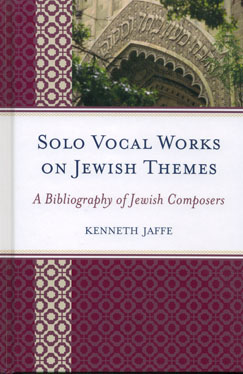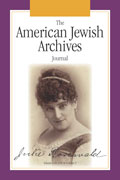YIVO is holding a conference on New York and the American Jewish Experience on Monday, Nov. 2, 2009.
The 4:15 to 5:30 pm afternoon session will include a paper by Marsha Dubrow, a musicologist at CUNY, on Lazar Weiner, and how Weiner’s music was felt in different parts of the Jewish community. The paper will include illustrations and samples.
From 5:30 to 6:15 there will be an Evening Reception.
In the evening, from 6:15 to 7:30 there will be a Roundtable of
Archivists on the Preserving the Treasures of Jewish Archives, with
participation from 92nd Street Y Archives, American Jewish Committee
Archives, Hadassah Archives, HIAS Archives, JDC Archives, Yeshiva
University Archives and YIVO Archives.
For the full program and to register, please visit:
http://yivo.org/events/index.php




 The music world involved in the revival of Jewish national music or recovery of early twentieth century art music of the first order will be dazzled by the new critical edition of Leo Zeitlin’s Chamber Music published by AR Editions, and edited by musicologist and professors Paula Eisenstein Baker and Robert S. Nelson. Texts are presented in original Yiddish, Hebrew, transliterations and English translation.
The music world involved in the revival of Jewish national music or recovery of early twentieth century art music of the first order will be dazzled by the new critical edition of Leo Zeitlin’s Chamber Music published by AR Editions, and edited by musicologist and professors Paula Eisenstein Baker and Robert S. Nelson. Texts are presented in original Yiddish, Hebrew, transliterations and English translation.